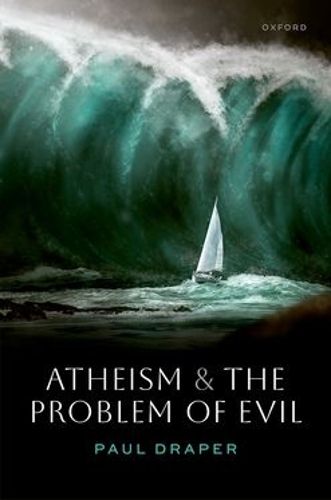Readings Newsletter
Become a Readings Member to make your shopping experience even easier.
Sign in or sign up for free!
You’re not far away from qualifying for FREE standard shipping within Australia
You’ve qualified for FREE standard shipping within Australia
The cart is loading…






Atheism and the Problem of Evil motivates, constructs, and defends two arguments from evil against "core theism." Core theism is the thesis that an omnipotent, omniscient, and loving agent created the cosmos. Core atheism is the denial of that thesis. Each argument involves comparing core theism to an alternative hypothesis and showing that the alternative is much more probable than core theism, which implies that core theism is very probably false. In the case of the first "decisive evidence" argument, a form of deism is shown to fit the relevant data much better than theism does despite being no less plausible than theism. In the case of the second "decisive priors" argument, a naturalistic hypothesis called "anaxiarchism" is shown to fit the relevant data at least as well as theism does despite being much more plausible than theism. Since these arguments conclude that core atheism is very probable all things considered, their defense cannot ignore alleged evidence for core theism, including ontological arguments, cosmological arguments, fine-tuning arguments, and arguments based on religious experience.
The book includes rigorous and original critiques of such arguments, making it more comprehensive than other volumes on the problem of evil, which typically focus only on evidence against theism. In addition, the book includes a chapter critiquing the strongest forms of "skeptical theism," which is the view that human ignorance makes us unqualified to judge how well core theism fits the relevant data, including data about the well- or ill-being of conscious living things. Another chapter examines attempts to expand or "version" theism by adding various auxiliary hypotheses to it, whether in the form of Christian doctrines or sceptical claims or speculations about God's reasons for allowing suffering. These attempts are shown to be of no help to the core theist. Finally, in a concluding chapter, the justificatory gap between the belief that core atheism is very probably true and the belief that it is true is bridged by arguing that the high probability of core atheism is stable.
$9.00 standard shipping within Australia
FREE standard shipping within Australia for orders over $100.00
Express & International shipping calculated at checkout
Atheism and the Problem of Evil motivates, constructs, and defends two arguments from evil against "core theism." Core theism is the thesis that an omnipotent, omniscient, and loving agent created the cosmos. Core atheism is the denial of that thesis. Each argument involves comparing core theism to an alternative hypothesis and showing that the alternative is much more probable than core theism, which implies that core theism is very probably false. In the case of the first "decisive evidence" argument, a form of deism is shown to fit the relevant data much better than theism does despite being no less plausible than theism. In the case of the second "decisive priors" argument, a naturalistic hypothesis called "anaxiarchism" is shown to fit the relevant data at least as well as theism does despite being much more plausible than theism. Since these arguments conclude that core atheism is very probable all things considered, their defense cannot ignore alleged evidence for core theism, including ontological arguments, cosmological arguments, fine-tuning arguments, and arguments based on religious experience.
The book includes rigorous and original critiques of such arguments, making it more comprehensive than other volumes on the problem of evil, which typically focus only on evidence against theism. In addition, the book includes a chapter critiquing the strongest forms of "skeptical theism," which is the view that human ignorance makes us unqualified to judge how well core theism fits the relevant data, including data about the well- or ill-being of conscious living things. Another chapter examines attempts to expand or "version" theism by adding various auxiliary hypotheses to it, whether in the form of Christian doctrines or sceptical claims or speculations about God's reasons for allowing suffering. These attempts are shown to be of no help to the core theist. Finally, in a concluding chapter, the justificatory gap between the belief that core atheism is very probably true and the belief that it is true is bridged by arguing that the high probability of core atheism is stable.